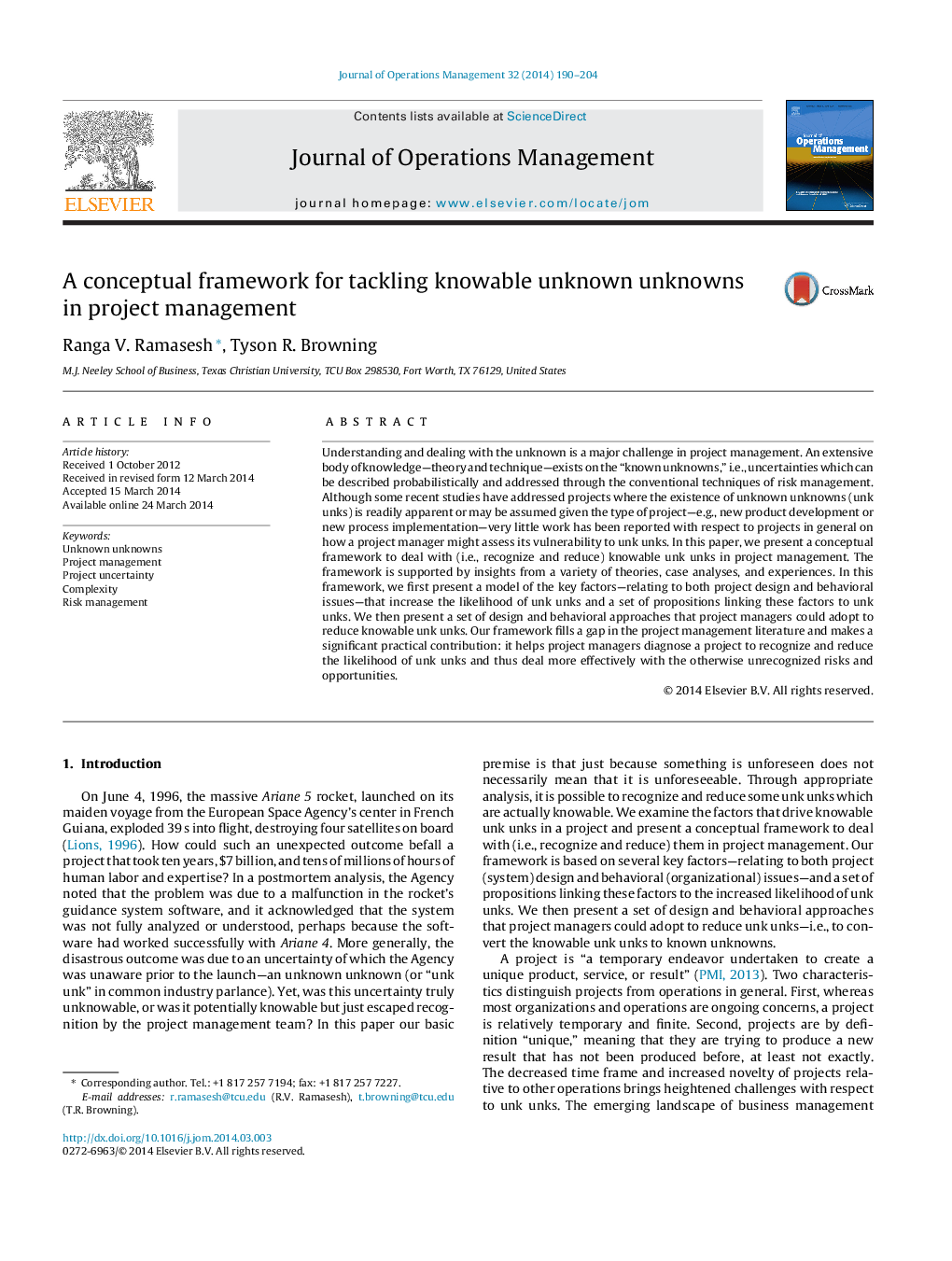| کد مقاله | کد نشریه | سال انتشار | مقاله انگلیسی | نسخه تمام متن |
|---|---|---|---|---|
| 1031684 | 943078 | 2014 | 15 صفحه PDF | دانلود رایگان |
Understanding and dealing with the unknown is a major challenge in project management. An extensive body of knowledge—theory and technique—exists on the “known unknowns,” i.e., uncertainties which can be described probabilistically and addressed through the conventional techniques of risk management. Although some recent studies have addressed projects where the existence of unknown unknowns (unk unks) is readily apparent or may be assumed given the type of project—e.g., new product development or new process implementation—very little work has been reported with respect to projects in general on how a project manager might assess its vulnerability to unk unks. In this paper, we present a conceptual framework to deal with (i.e., recognize and reduce) knowable unk unks in project management. The framework is supported by insights from a variety of theories, case analyses, and experiences. In this framework, we first present a model of the key factors—relating to both project design and behavioral issues—that increase the likelihood of unk unks and a set of propositions linking these factors to unk unks. We then present a set of design and behavioral approaches that project managers could adopt to reduce knowable unk unks. Our framework fills a gap in the project management literature and makes a significant practical contribution: it helps project managers diagnose a project to recognize and reduce the likelihood of unk unks and thus deal more effectively with the otherwise unrecognized risks and opportunities.
Journal: Journal of Operations Management - Volume 32, Issue 4, May 2014, Pages 190–204
